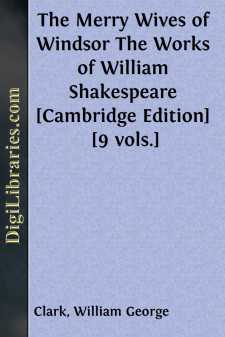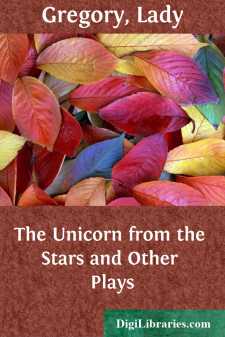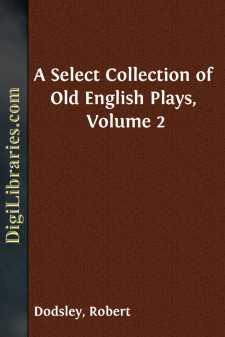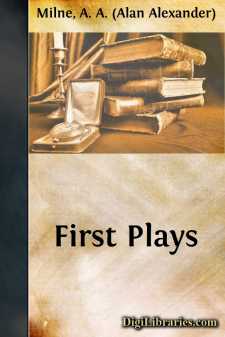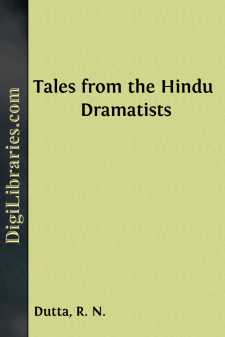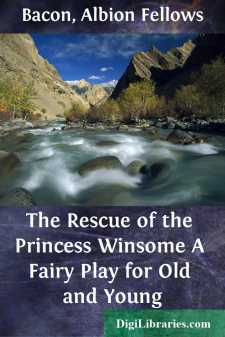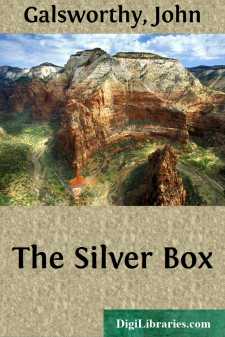Drama Books
Sort by:
by:
Bernard Shaw
ACT I A fine October morning in the north east suburbs of London, a vast district many miles away from the London of Mayfair and St. James's, much less known there than the Paris of the Rue de Rivoli and the Champs Elysees, and much less narrow, squalid, fetid and airless in its slums; strong in comfortable, prosperous middle class life; wide-streeted, myriad-populated; well-served with ugly iron...
more...
MERRY WIVES OF WINDSOR. Besides the copies of the Merry Wives of Windsor appearing in the folios and modern editions, a quarto, Q, has been collated in these Notes, of which the following is the title: The | Merry Wives | of Windsor. | with the humours of Sir John Falstaffe, | as also, The swaggering Vaine of Ancient | Pistoll, and Corporall Nym. |written by William Shake-speare. | Newly corrected. |...
more...
THE JEW OF MALTA. Enter MACHIAVEL. MACHIAVEL. Albeit the world think Machiavel is dead,Yet was his soul but flown beyond the Alps;And, now the Guise is dead, is come from France,To view this land, and frolic with his friends.To some perhaps my name is odious;But such as love me, guard me from their tongues,And let them know that I am Machiavel,And weigh not men, and therefore not men's...
more...
by:
Lady Gregory
PREFACE About seven years ago I began to dictate the first of these Plays to Lady Gregory. My eyesight had become so bad that I feared I could henceforth write nothing with my own hands but verses, which, as Theophile Gautier has said, can be written with a burnt match. Our Irish Dramatic movement was just passing out of the hands of English Actors, hired because we knew of no Irish ones, and our...
more...
by:
Robert Dodsley
INTERLUDE OF YOUTH. CHARITY.Jesu that his arms did spread,And on a tree was done to dead,From all perils he you defend!I desire audience till I have made an end,For I am come from God aboveTo occupy his laws to your behove,And am named Charity;There may no man saved beWithout the help of me,For he that Charity doth refuse,Other virtues though he do use,Without Charity it will not be,For it is written...
more...
INTRODUCTION These five plays were written, in the order in which they appear now, during the years 1916 and 1917. They would hardly have been written had it not been for the war, although only one of them is concerned with that subject. To his other responsibilities the Kaiser now adds this volume. For these plays were not the work of a professional writer, but the recreation of a (temporary)...
more...
by:
R. N. Dutta
SAKUNTALA or THE LOST RING. In ancient days, there was a mighty king of the Lunar dynasty by name Dushyanta. He was the king of Hastinapur. He once goes out a-hunting and in the pursuit of a deer comes near the hermitage of the sage Kanwa, the chief of the hermits, where some anchorites request him not to kill the deer. The king feels thirsty and was seeking water when he saw certain maidens of the...
more...
by:
Bernard Shaw
ACT I Great George Street, Westminster, is the address of Doyle and Broadbent, civil engineers. On the threshold one reads that the firm consists of Mr Lawrence Doyle and Mr Thomas Broadbent, and that their rooms are on the first floor. Most of their rooms are private; for the partners, being bachelors and bosom friends, live there; and the door marked Private, next the clerks' office, is their...
more...
ACT I. Scene I. Witch bends over fire in middle of orchard, brewing a charm in her caldron. Ogre stalks in, grinning frightfully, swinging his bludgeon in triumph. Ogre Ha, old witch, it is done at last! I have broken the King's stronghold! I have stolen away his children twain From the clutch of their guardsmen bold. I have dragged them here to my castle tower. Prince Hero is strong and fair. But...
more...
by:
John Galsworthy
ACT I SCENE I The curtain rises on the BARTHWICK'S dining-room, large,modern, and well furnished; the window curtains drawn.Electric light is burning. On the large round dining-table isset out a tray with whisky, a syphon, and a silvercigarette-box. It is past midnight. A fumbling is heard outside the door. It is opened suddenly;JACK BARTHWICK seems to fall into the room. He stands holdingby the...
more...



